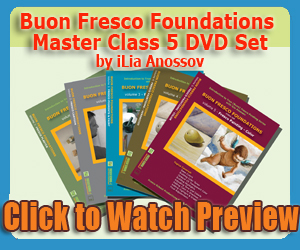"We are in danger of having a new kind of official art foisted upon us - official 'modern' art. It is being done by well intentioned people like the Pepsi-cola company who fail to realize that to be for something uncritically does more harm in the end than by being against it. For while official art, when it was thoroughly academic, furnished at least a sort of challenge, official 'modern' art of this type will confuse, discourage and dissuade the true creator." (Clement Greenberg, 1945)abvg,
Since I've mentioned Max Raphael twice in my previous posts, I thought it might be a good idea to supply a quote from him: "Any state which under any circumstances whatever persecutes science, art, philosophy, or religion by any sort of arbitrary measures is an immoral state and an impotent one, whose recourse to brute force camouflages its weaknesses" (quoted by Herbert Read in his preface to Raphael's "The Demands of Art").
I would like to begin supporting the thesis that Postmodernism is essentially, to use Andreas Huyssen's term, "an American internationale" (see "Postmoderne: Zeichen eines kulturelle Wandels", Rowohlt, 1997, ed. Andreas Huyssen & Klaus R. Scherpe). But first I need to remind you that Pop Art could never have existed without the deep, long-standing mistrust for the concept of Autonomous Art originating in "old Europe" (the SAME American prejudice of "old Europe" now put into the headlines by US Defense Secretary Rumsfeld). The dark ideological underside of the American mass-culture "renaissance" (whose beginnings predate the end of WW II by at least three decades) is fashioned around the populistic conviction that after America's arrival on the stage of world culture, "that old European stuff" will no longer be needed by anyone outside of a few old Europeans". This is what Raphael means by the phrase "under any circumstances whatever" - which theoretically includes just such an American cultural prejudice; and Raphael's "brute force" may be taken to mean the kind of cultural-economic domination in the meantime perfected by America.
Perhaps one of the most influential Pop-era critiques was "The New Mutants" by the American critic Leslie Fiedler, in which the postmodern is hailed as a populistic "post-white", "post-male", "post-humanistic" and "post-puritannical" (new) world. (It should never be forgetten: in America, "old" = "bad" and "new" = "good" - black and white oppositions we might, I fear, see played-out in headlines yet-to-come.)
"Fiedler's populism is located on the other side of an absolute art/mass-culture dichotomy, serving Adorno and Greenberg as supports for a dogmatic modernism which Fiedler, in fact, wanted to bury completely. Fiedler simply took a position on the other bank, insulting all 'elitist' art and singing the song of praise of the popular (Völkstumlichen). Yet Fiedler's emphatic solution - to cross the boundaries betweed high art and mass-culture, decreasing the distance between the two, as well as his explicit critique of what would be later called 'Euro-', 'Logo-' and 'Phallocentricism' - can be considered important signposts for further developments of the postmodern." (Huyssen, op cit, p. 21)
My overall thesis is that the cultural seeds of Postmodernism are contained in America's very origins as a nation. The (autonomous) high art of "old Europe" does not - and never did - pass into the American democratic cultural ideal. It is not that the founders of America were unaware of high art or its significance. As true sons of the Enlightment, however, they felt that these "aristocratic" art concepts were expendable luxuries - irrelevant and unnessesary to the American Experiment, something the New World - and by later extension, humanity - could live without. Prior to the end of WW II, America's cultural elite suffered from an ongoing, if not semi-private, "inferiority complex" in relation to the concepts of European high art and culture. Nor did America's position as the leading producer of mass-culture (a form, by the way, with thoroughly European origins) help matters very much. As the "winner of WW II" and a nation already well on the road to world domination (albeit with somewhat different tactics than those of the present), America's cultural elite felt that it could finally afford to discard its old and not a little embarassing self-image as a culturally underdeveloped class. All that remained was to fashion a cultural-revolutionary redefinition of the concept of art itself. Kierkegaard has drawn an instructive distinction between a "passionate age" and a "truely revolutionary age". A passionate age razes everything to the ground, leaves nothing standing; a truely revolutionary age leaves everything standing just as before, but "cunningly emptied of significance."
Postmodernism was the result of the post-WW II relocation of the Art Capitol of the World from Paris to New York conditioned by two important historical factors: (1) the nihilistic (atomic) brutality with which America "won" WW II (which is still very much with us) and (2) America's post-war cultural-economic-military world hegemony (which continues).
Best Wishes, David





